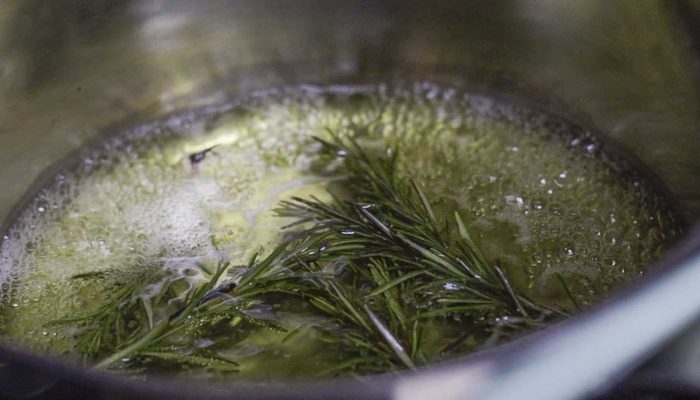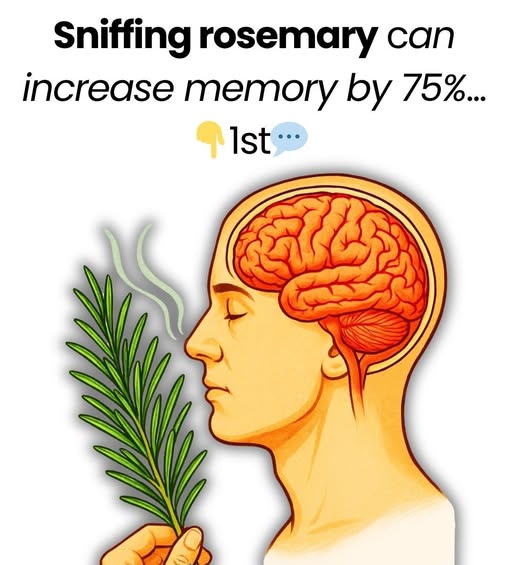I came across a headline saying that sniffing rosemary can boost memory by 75%. Immediately, I thought wow, that sounds incredible! After all, a natural remedy that sharpens our minds? It felt like a dream. I was eager to dive deeper and see if there was truth behind it or if it was just another exaggerated health buzz.
What the Studies Actually Reveal
Digging in, I found that while rosemary does show some memory-boosting potential, the dramatic 75% figure doesn’t hold up scientifically.
Here’s what real research shows:
- A study involving inhalation of rosemary aroma found only modest improvements in prospective memory—tasks like remembering appointments or practical reminders. Most gains hovered around 5% to 15%, not the colossal 75% claimed in sensational headlines.
- One experiment with an older adult group reported about a 15% improvement in memory tests after ingesting a concentrated rosemary drink.
- Lab studies in animals suggest rosemary compounds may support brain neurotransmitter activity, especially acetylcholine, which plays a key role in learning and recall.
- Other human trials indicate inhaling rosemary scent can slightly enhance brain alertness and recall speed, but again, improvements are subtle and context-specific.

The Decimal Point Error
The infamous “75%” figure seems to have originated from a media misinterpretation of a small study at a conference. The actual improvement was closer to 7.5%, and a researcher later clarified that the decimal point was misplaced.
Why Rosemary Still Holds Interest
Even without magical numbers, rosemary offers more than culinary flair:
- It may support neurotransmitters vital for cognitive function and help preserve acetylcholine levels.
- Its aroma could boost alertness, reduce anxiety, and improve mood—factors that indirectly support clearer thinking.
- A promising development: a rosemary-derived compound called diAcCA showed potential in reducing Alzheimer’s-related proteins in early lab tests—an exciting preclinical breakthrough.
Why It Matters
The gap between hype and research highlights how easily natural remedies can be overstated online. While rosemary likely isn’t a memory miracle, it may still provide a mild lift—especially when combined with healthy habits like proper nutrition, mental stimulation, and good sleep.
A Viral Claim with a Catch
I came across a headline saying that sniffing rosemary can boost memory by 75%. Immediately, I thought—wow, that sounds incredible! After all, a natural remedy that sharpens our minds? It felt like a dream. I was eager to dive deeper and see if there was truth behind it or if it was just another exaggerated health buzz. The idea of using herbs for cognitive enhancement has been around for centuries, and rosemary has often been associated with memory in cultural references and historical traditions. I wanted to know whether this modern claim had any real evidence or if it was simply a sensational headline designed to attract attention.
What the Studies Actually Reveal
Digging in, I found that while rosemary does show some memory-boosting potential, the dramatic 75% figure doesn’t hold up scientifically. Researchers have explored both inhalation and ingestion methods, but the improvements tend to be modest.
Here’s what real research shows:
- A study involving inhalation of rosemary aroma found only modest improvements in prospective memory—tasks like remembering appointments or practical reminders. Most gains hovered around 5% to 15%, not the colossal 75% claimed in sensational headlines.
- One experiment with an older adult group reported about a 15% improvement in memory tests after ingesting a concentrated rosemary drink.
- Lab studies in animals suggest rosemary compounds may support brain neurotransmitter activity, especially acetylcholine, which plays a key role in learning and recall.
- Other human trials indicate inhaling rosemary scent can slightly enhance brain alertness and recall speed, but again, improvements are subtle and context-specific. These trials often involved small sample sizes, short durations, or very controlled conditions, making it hard to generalize the results to everyday life.

The Decimal Point Error
The infamous “75%” figure seems to have originated from a media misinterpretation of a small study at a conference. The actual improvement was closer to 7.5%, and a researcher later clarified that the decimal point was misplaced. This miscommunication demonstrates how easy it is for numbers to be exaggerated when translated from scientific jargon into news stories.
Conclusion
So what’s the takeaway? Rosemary might help subtly — perhaps sharpen your mind slightly or boost alertness. But expecting it to dramatically enhance memory by 75%? That’s not backed by credible evidence. Its secret strength may lie in its gentle support of focus and brain health, rather than sweeping cognitive enhancement.

















